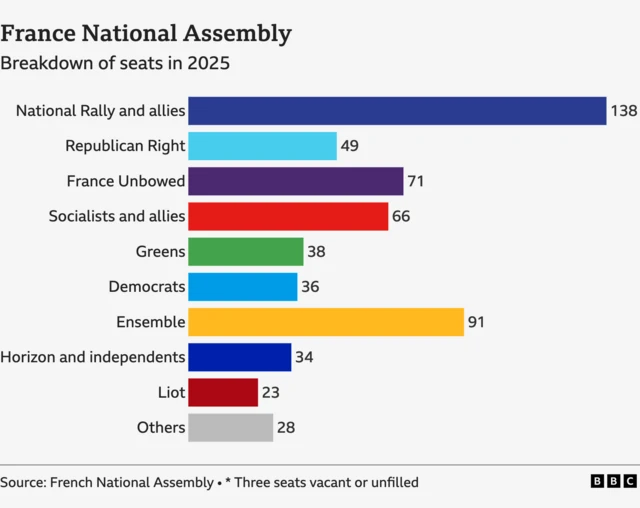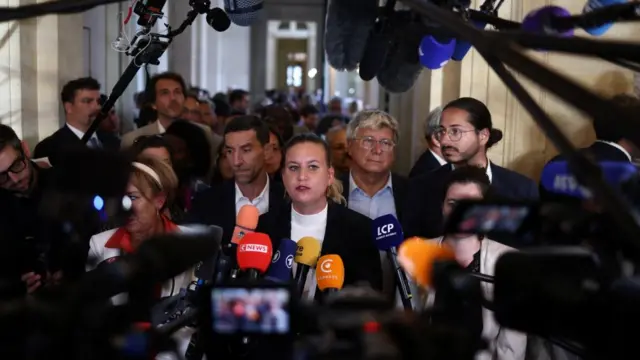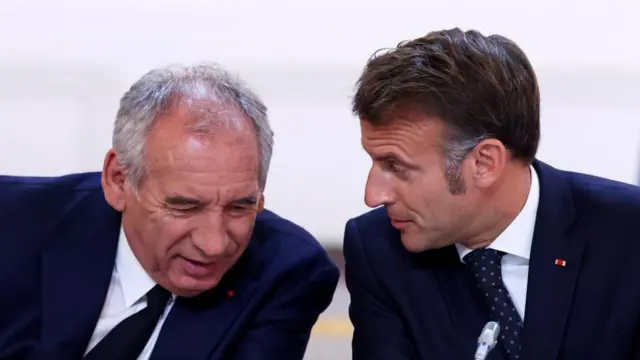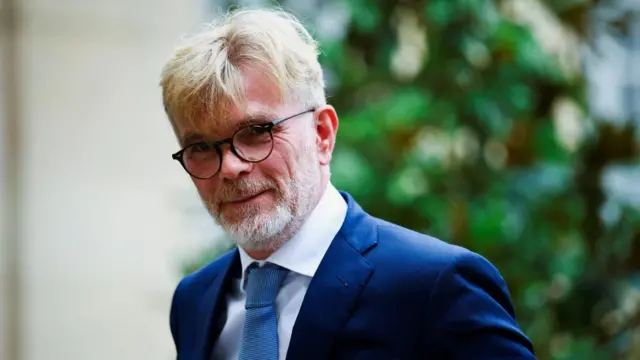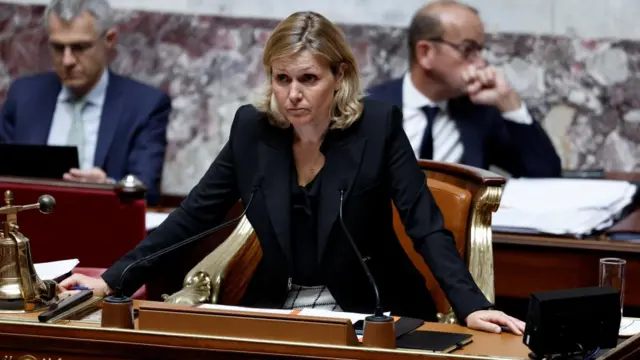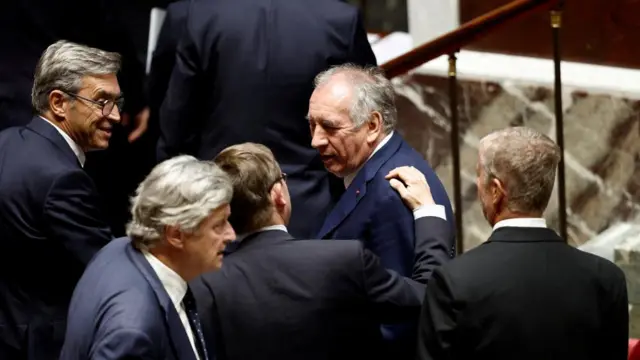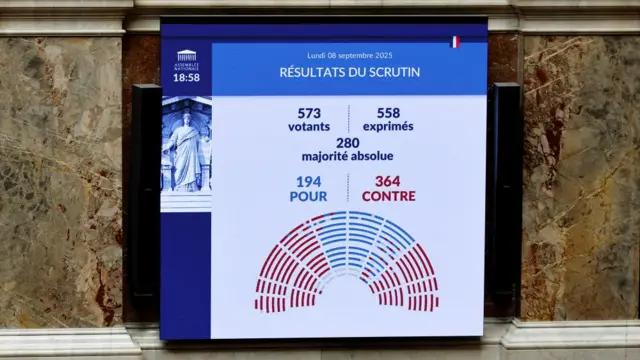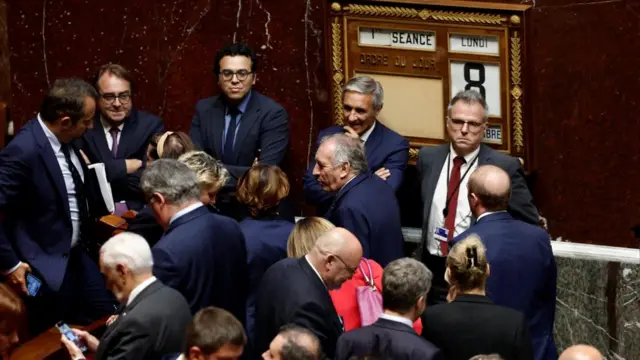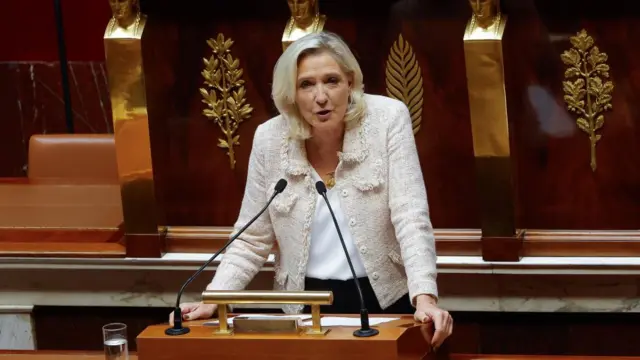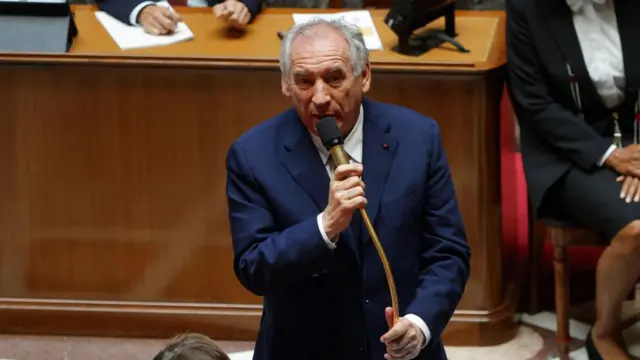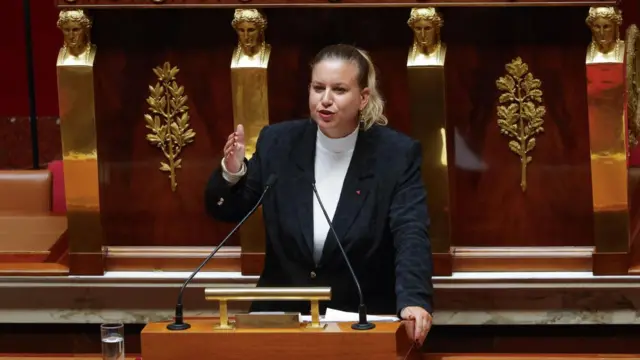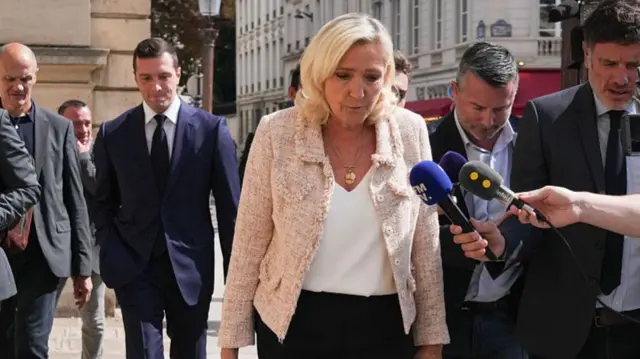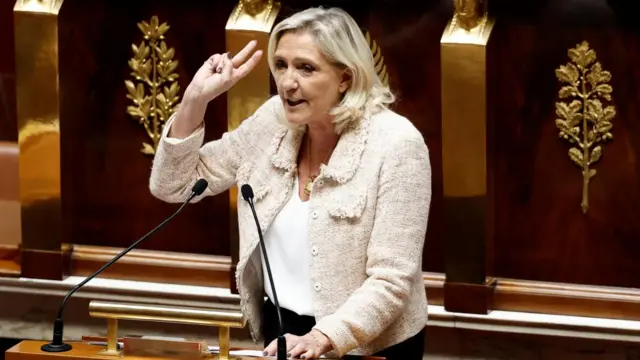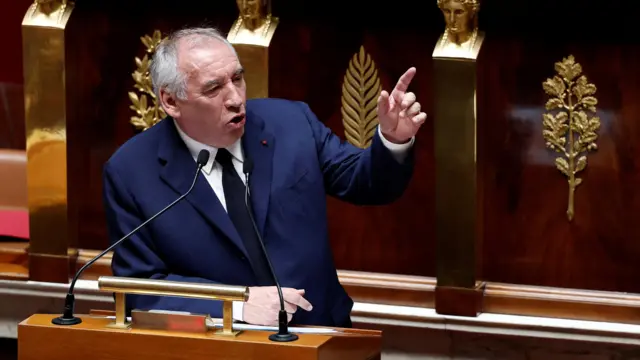France plunged into new crisis after MPs vote to oust prime ministerpublished at 20:12 BST 8 September
 Hugh Schofield
Hugh Schofield
Paris Correspondent
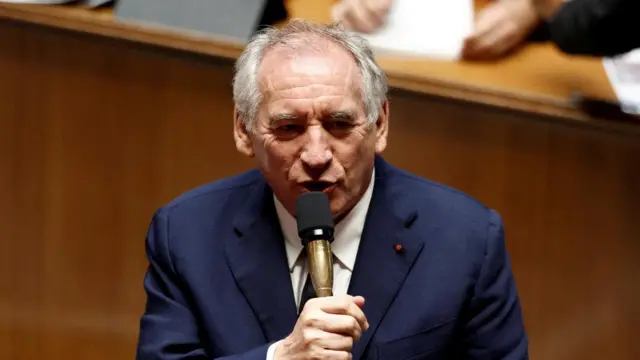 Image source, Reuters
Image source, ReutersFrance has been plunged into a new political crisis with the defeat of Prime Minister Francois Bayrou at a confidence vote in the National Assembly.
The defeat – by 364 votes to 194 – means that Bayrou will tomorrow present his government’s resignation to President Macron, who must now decide how to replace him. Macron’s office said this would happen “in the coming days”.
France is thus en route to getting its fifth prime minister in less than two years – a dismal record that underscores the drift and disenchantment that have marked President Macron’s second term.
Bayrou’s fall came after he staked his government on an emergency confidence debate centred on the question of French debt.
He spent the summer in speeches, interviews and social media posts warning of the “existential” threat to France if it did not start to tackle its 3.4 trillion euro liability.
But he was quickly disabused of any hope that his prophesies of financial doom would sway opponents. Lacking any majority in the National Assembly, Bayrou saw the left and hard-right uniting against him – and his fate was sealed.
Some have speculated that Macron would turn now to a leftwing prime minister, having failed with the conservative Barnier and the centrist Bayrou. However, the PS has said it wants a total break from Macron’s pro-business policies.
It therefore seems likely Macron will look initially to another figure from within his own camp, with Defence Minister Sebastien Lecornu, Labour Minister Catherine Vautrin and Finance Minister Eric Lombard all said to be in the running.
We are ending our live coverage but you can stay across this story with Hugh Schofield's latest report.
